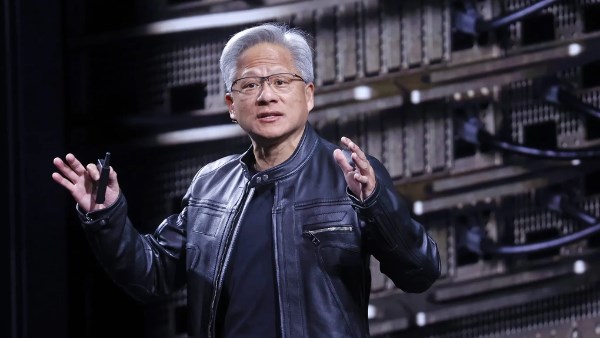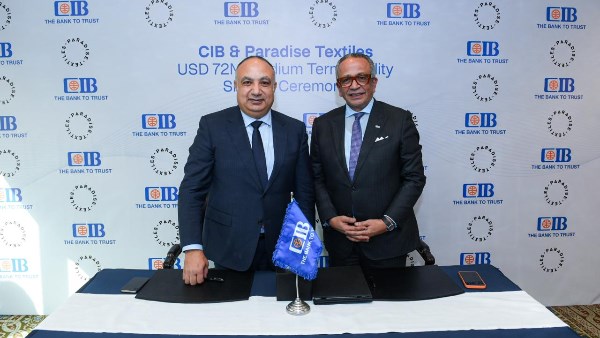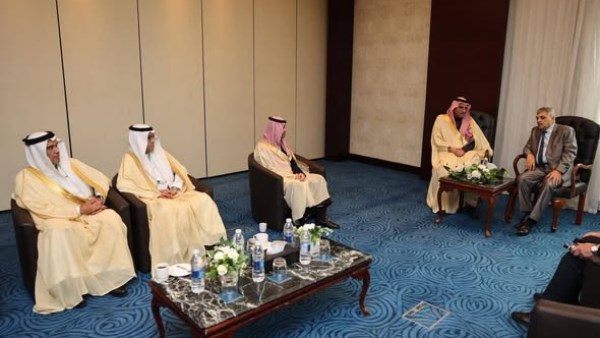
China already faces the prospect of increased trade tension with the US
Xi Has Few Options to Punish EU Without Starting Trade War

The EU move to take levies on Chinese vehicles to as high as 48% starting next month has it joining the US، Turkey and other nations in acting to limit a surge in imports from the Asian nation.
China’s Commerce Ministry and its chamber of commerce in the EU blasted the step by Brussels after the Wednesday announcement.
While retaliation may help dissuade further trade-protection moves around the world، the danger for Beijing is that a too-strong response encourages further trans-Atlantic alignment against China — cutting against President Xi Jinping’s efforts to encourage “strategic autonomy” in Europe.
“If China responds in kind with aggressive tariffs، they risk triggering a trade war،” said Joe Peissel، an economic analyst at research firm Trivium China. “Beijing is desperate” to avoid that، he said.
China already faces the prospect of increased trade tension with the US، as former President Donald Trump — who launched multiple rounds of tariff hikes on Chinese goods in his first term — leads in some polls ahead of the November election. Under President Joe Biden، there’s been increasing coordination among advanced economies against China، with the Group of Seven in recent weeks beginning to call out the nation by name for distorting the global economy.
Merics، a Berlin-based research institute focusing on China، predicted that Chinese retaliation will focus on agricultural items like cheese and pork. After the EU began its anti-dumping investigation into electric vehicles، Beijing started a probe into European liquor products like brandy. France، which pressed for the Chinese EV move by Brussels، is a major brandy exporter.
Chinese firms have filed a formal request to authorities for an anti-dumping investigation into pork imports from the EU، state-run Global Times said Thursday. Any curbs on the products would hurt Spain، the largest EU supplier of the meat to China. State-run media have also signaled Beijing’s considering tariffs as high as 25% on imported cars with large engines، which would affect a fraction of German carmakers’ sales in the country.
“Beijing won’t target the EU products it still needs،” Merics lead analyst Jacob Gunter wrote in a note Thursday. Those goods include machinery، high-quality industrial inputs، chemicals and medical-technology items، he said.
Avoiding ‘Overreaction’
The impact of the EU’s own move may also prove limited. The efficiency of China’s carmakers means that even with the new tariffs in place they can likely still turn a profit. Chinese companies are also looking to rapidly build factories in Europe، which would blunt the impact of measures on imports.
“Beijing probably wants to avoid a tariff war while continuing to enable its EVs to enter the European market،” said Ja Ian Chong، an associate professor of political science at the National University of Singapore. “An overreaction could jeopardize both aims.”
Chong said that retaliatory moves could be calibrated to target specific EU members or even particular districts in order to apply pressure.
China’s initial reaction amounted to a wave of verbal condemnation. The Ministry of Commerce demanded the EU correct its “mistake.” The Chinese Chamber of Commerce in the bloc called the move “protectionist” and argued some allegations of subsidies were “unfounded or exaggerated.”
China’s Strident Opposition
“The EU has disregarded the facts and WTO rules، ignored China’s repeated strong opposition، ignored the appeals and dissents of many EU member governments and industries، and has acted unilaterally. China is highly concerned and strongly dissatisfied with this، and the Chinese industry is deeply disappointed and firmly opposed to this.”
Ministry of Commerce statement
The Commerce Ministry spokesman at a briefing Thursday stated that China might complain to the World Trade Organization at some point.
But in the meantime، the two sides may engage bilaterally. After announcing the new tariffs، the EU said it had contacted Chinese authorities “to discuss these findings and explore possible ways to resolve the issues.”
“There’s still space for negotiation،” said Tu Xinquan، dean of the China Institute for WTO Studies at the University of International Business and Economics in Beijing. “The final decisions will be made in a few months، so there’s still time. Even after the tariffs are levied، it is still possible to coordinate positions.”
Aviation and agriculture were among the sectors that Beijing privately warned the EU could be targeted before the Brussels decision، Bloomberg reported last week، citing a person familiar with the matter.
There are various carrots that China can offer — France-based airplane maker Airbus SE is negotiating a major sale of aircraft to China at the moment، according to people familiar with the matter.
Even so، the stick will also be used، according to Alicia Garcia Herrero، chief Asia Pacific economist at Natixis SA.
“This is just the beginning،” she said. “China won’t retaliate right away but eventually they will find a way.”





-1120252475029447.jpg)














